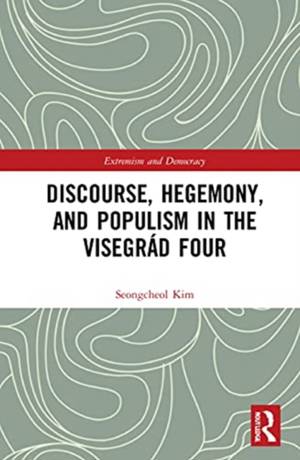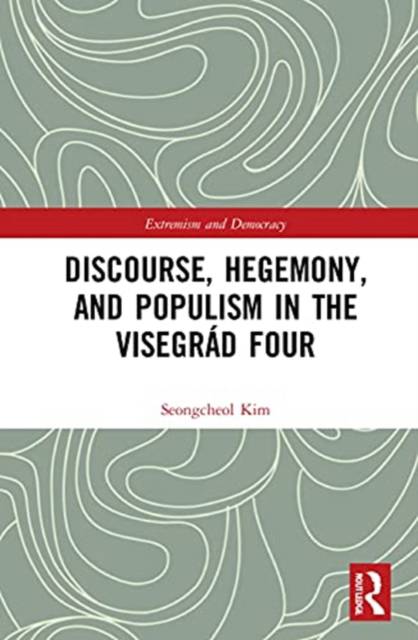
- Afhalen na 1 uur in een winkel met voorraad
- Gratis thuislevering in België vanaf € 30
- Ruim aanbod met 7 miljoen producten
- Afhalen na 1 uur in een winkel met voorraad
- Gratis thuislevering in België vanaf € 30
- Ruim aanbod met 7 miljoen producten
Discourse, Hegemony, and Populism in the Visegrád Four
Seongcheol KimOmschrijving
This is the first book-length account of populism in the Visegrád Four (V4) countries -- Czech Republic, Hungary, Poland, and Slovakia -- for the first 30 years of multi-party competition since the transformative events of 1989-91 in Central and Eastern Europe.
Advancing a post-foundational approach to populism based on a semi-formal reading of Ernesto Laclau's theory, the book undertakes a detailed examination of how the 'people' has been constructed in populist discourses in the party systems of the four countries since 1989. Drawing on a wealth of source material, the book offers both a wide-ranging and in-depth overview and classification of populism in the V4 in terms of discursive (e.g. centrist, conservative, left-wing, liberal, nationalist, social) and hegemonic type (e.g. authoritarian hegemonic, generational counter-hegemonic) alike.
This book will be of interest to students and scholars of populism, party politics, and Central and Eastern Europe.
Specificaties
Betrokkenen
- Auteur(s):
- Uitgeverij:
Inhoud
- Aantal bladzijden:
- 316
- Taal:
- Engels
- Reeks:
Eigenschappen
- Productcode (EAN):
- 9781032015354
- Verschijningsdatum:
- 13/08/2021
- Uitvoering:
- Hardcover
- Formaat:
- Genaaid
- Afmetingen:
- 156 mm x 234 mm
- Gewicht:
- 644 g

Alleen bij Standaard Boekhandel
Beoordelingen
We publiceren alleen reviews die voldoen aan de voorwaarden voor reviews. Bekijk onze voorwaarden voor reviews.











